Visiting Faculty
University faculty members are invited to spend part or all of their sabbaticals at MERL.
-
Apply for a Visiting Faculty Position at MERL
University faculty members are invited to spend part or all of their sabbaticals at MERL, pursuing projects of their own choosing in collaboration with MERL researchers. MERL will provide an office, access to compute facilities, travel support and compensation when the compensation provided by the home university is not sufficient. Special resources for projects can be arranged if proposed in advance.
In addition to participating in the life of the lab, Visiting Faculty are expected to bookend their time at MERL with two talks: one introducing their work or a problem of interest to the MERL community, and one summarizing their work while at MERL.
To apply, a candidate should identify and contact one or more MERL researchers with whom they would like to collaborate. The applicant and a MERL researcher will jointly prepare a proposal that the researcher will champion internally.
Applications are considered up to two years in the future and must include the following materials:
- One page Cover letter indicating (a) target dates and duration of visit, (b) whether the leave from the university is still pending approval and if so, the time frame for a decision, (c) the level of financial support from the university, and (d) expectations for the visit;
- Proposed research plan with indication of MERL collaborators (two pages or less); and
- Curriculum Vitae outlining work experience, publication record and primary research achievements.
Applications will be considered on a rolling basis with acceptance decisions made throughout the year.
Applications should be sent as a single PDF file to
. Questions and inquires can also be sent to this address.
About MERL: Mitsubishi Electric Research Labs is an industrial research lab that does a mix of basic and applied research, operating much like an academic research institute, with most results published in selective peer-reviewed journals and proceedings. Faculty of computer science, electrical engineering, operations research, applied math, and applied physics departments are likely to find many projects of interest ongoing at MERL, and an environment highly congenial to new research directions. MERL is located in east Cambridge, within walking distance to MIT and Harvard, where we have several collaborators and alumni on the faculty.
-
Current and Past Visiting Faculty
-
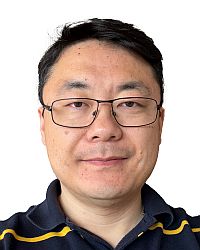
Assistant Professor, Northeastern Universityhttps://www.khoury.northeastern.edu/people/huaizu-jiang/
Research Theme: Investigating data-driven 3D implicit representations, such as signed distance functions or neural radiance fields, for efficient and accurate 3D mapping of dynamic scenes.
-
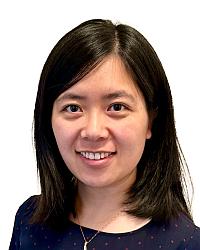
Professor, Harvard Universityhttps://nali.seas.harvard.edu/
Research Theme: Investigate the framework and tools to integrate control theory and machine learning, e.g., representation learning, imitation learning, and reinforcement learning, to solve planning and control problems in building, mobility, and manufacturing sectors; develop and analyze optimization algorithms.
-
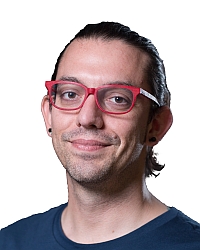
Professor, Rensselaer Polytechnic Institutehttps://faculty.rpi.edu/luigi-vanfretti
Research Theme: Investigating multi-domain interactions between power systems, HVAC equipment, and building envelopes to design new modeling, simulation, and control methods for grid-interactive efficient buildings.
Related Publications: https://shadow.merl.com/publications/?tags=Vanfretti
-
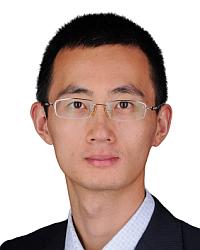
Associate Professor, University of KansasResearch Theme: Investigating the framework to effectively integrate physics and machine learning for dynamical system modeling, planning, and control with application to batteries and motor-driven systems.
Related Publications: https://shadow.merl.com/publications/?tags=Huazhen+Fang
-
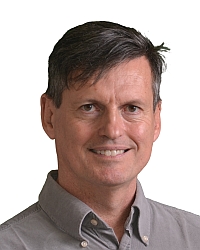
Professor, University of Illinois at Urbana-Champaignhttp://www.ifp.illinois.edu/~moulin/
Research Theme: Adversarial machine learning, including privacy considerations as well as applications of adversarial machine learning to speech, audio, and vision problems.
Related Publications: https://shadow.merl.com/publications/?tags=Moulin
-
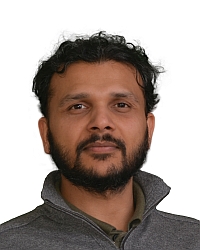
Associate Professor, Tufts Universityhttp://www.ece.tufts.edu/~shuchin/
Research Theme: Investigate the theory and applications of transport-based metrics between probability measures with applications to imaging, machine learning, and dynamical systems.
Related Publications: https://shadow.merl.com/publications/?tags=Shuchin
-
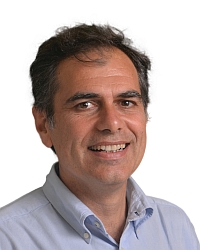
Professor, University of Sevillehttps://scholar.google.com/citations?user=jsUW7AsAAAAJ
Research Theme: Model predictive control, with particular focus on control designs for multi-zone HVAC systems.
Related Publications: https://shadow.merl.com/publications/?tags=Limon
-
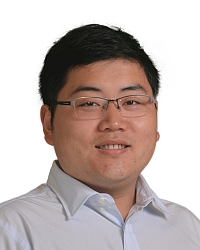
Assistant Professor, Georgia Southern Universityhttps://sites.google.com/view/weinangao/home
Research Theme: Output-feedback adaptive optimal control of nonlinear systems and data-driven cooperative adaptive optimal control of multi-agent systems, as well as applications of these techniques.
Related Publications: https://shadow.merl.com/publications/?tags=Weinan+Gao
-
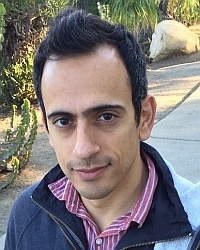
Associate Professor, Department of Mathematics, University of California, San Diegohttps://www.math.ucsd.edu/~rsaab/
Research Theme: Generalized phase retrieval with applications to sensor calibration and blind deconvolution. Specific interests include deriving conditions which guarantee the correct separation of a sparse signal from its convolution with an unknown kernel from measurements obtained through an ill-conditioned linear operator that observes the convolved signals.
Related Publications: https://shadow.merl.com/publications/?tags=Saab
-
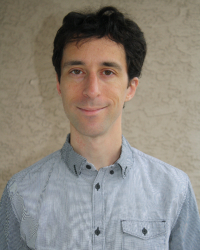
Professor, University of Albertahttps://www.ualberta.ca/engineering/faculty/martin-barczyk
Research Theme: Collaborative mapping of indoor spaces via extensions to Pose Graph SLAM to enable multi-session, multi-agent mapping.
-
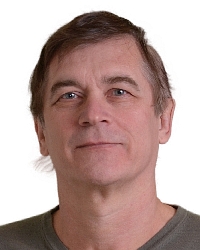
Professor, University of Bergen, Norwayhttps://www.uib.no/en/persons/Aleksandr.Malyshev
Research Theme: Major focus on preconditioned optimization algorithms for control, but also worked on graph-based filtering techniques to improve signal reconstruction.
Related Publications: https://shadow.merl.com/publications/?tags=Malyshev
-
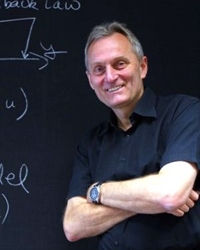
Professor, TU Berlin, Germanyhttps://www.math.tu-berlin.de/fachgebiet . . . /v-menue/mitarbeiter/mehrmann/home/
Research Theme: Model reduction and proper orthogonal decomposition. During his stay at MERL, he presented a series of lectures on these topics.
-
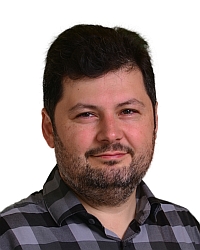
Professor, Sabanci University, TurkeyResearch Theme: Primarily worked on robust speech processing, focusing on the use of deep recurrent neural networks for separation and recognition of single-channel speech in non-stationary background noise scenarios. He introduced the so-called phase-sensitive mask for speech enhancement and source separation during his stay at MERL, and showed that one could obtain better enhancement and ASR results by doing a second pass of enhancement plus ASR, taking an initial ASR output as auxiliary input.
Related Publications: https://shadow.merl.com/publications/?tags=Erdogan
-
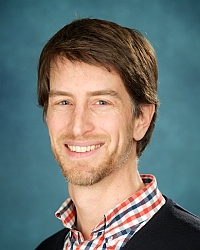
Professor, University of Toronto, Canadahttp://www.comm.utoronto.ca/~sdraper/
Research Theme: Applications of information theory, including the use of distributed source coding principles to achieve biometric security, as well as code design for optical channels.
Related Publications: https://shadow.merl.com/publications/?tags=Draper
-
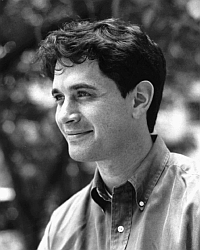
Professor, Harvard Universityhttps://www.eecs.harvard.edu/~michaelm/
Research Theme: Randomized algorithms and probabilistic analysis, with particular focus on stochastic min-cost paths and flows during his stay at MERL.
Related Publications: https://shadow.merl.com/publications/?tags=Mitzenmacher